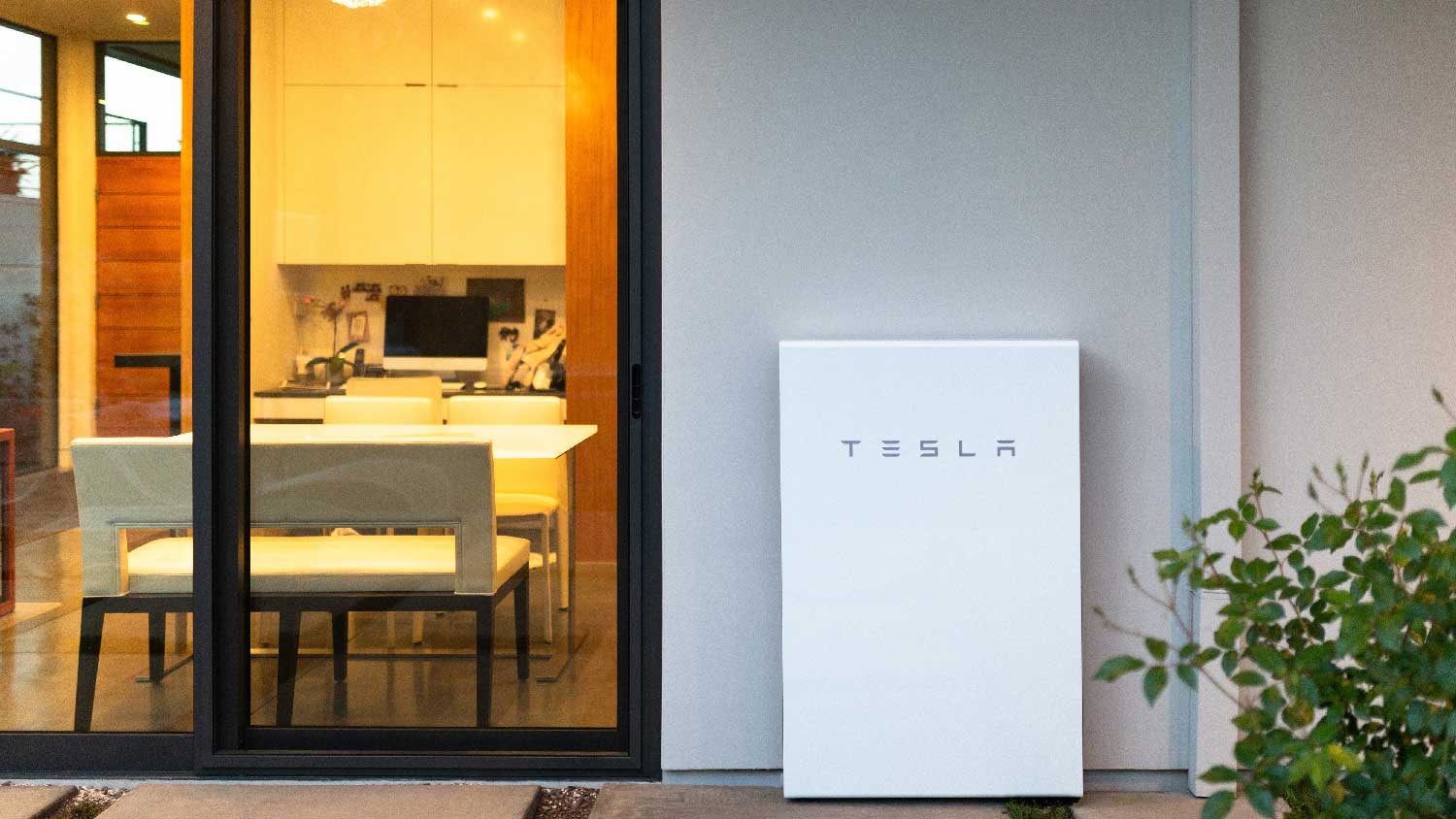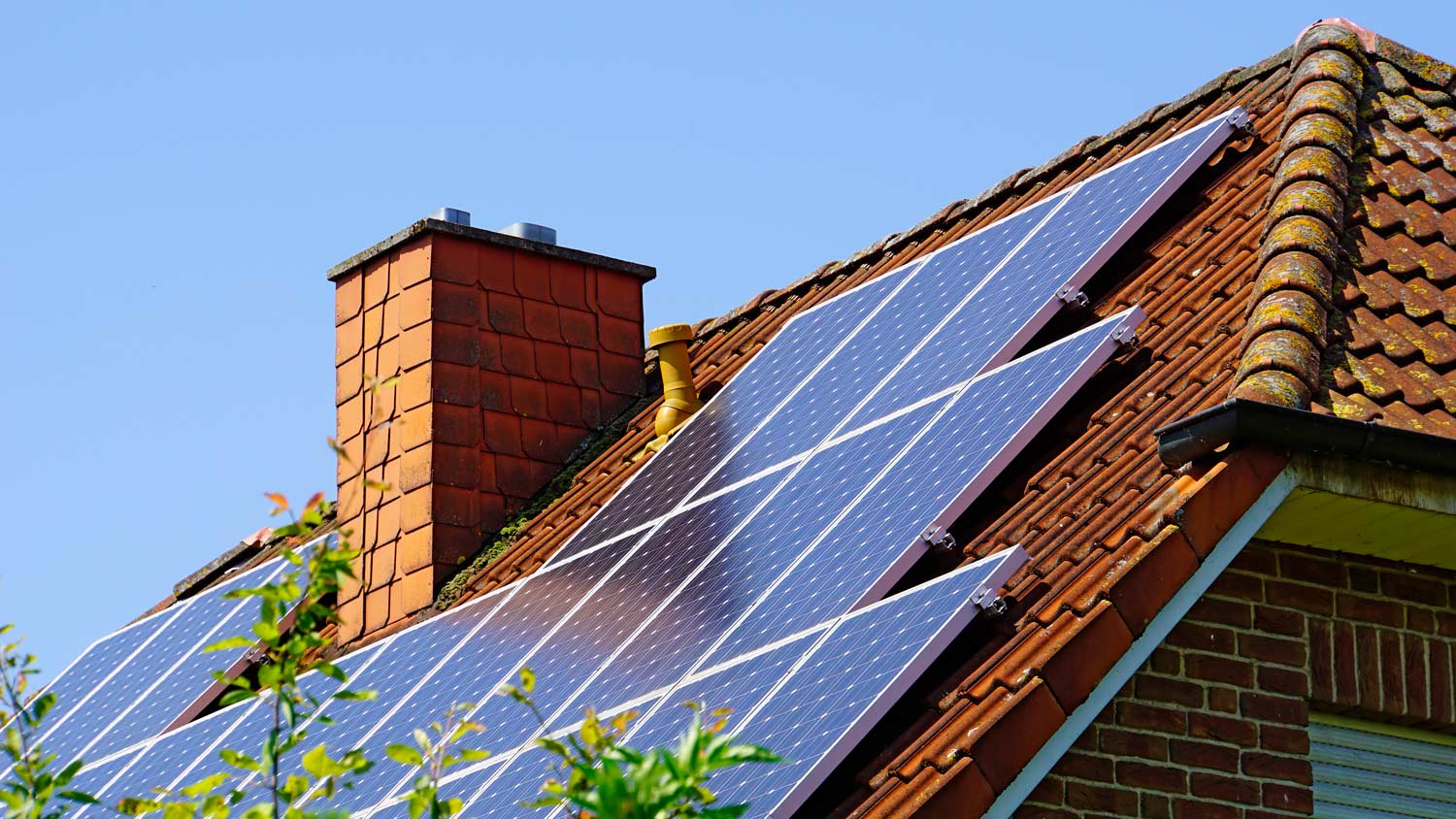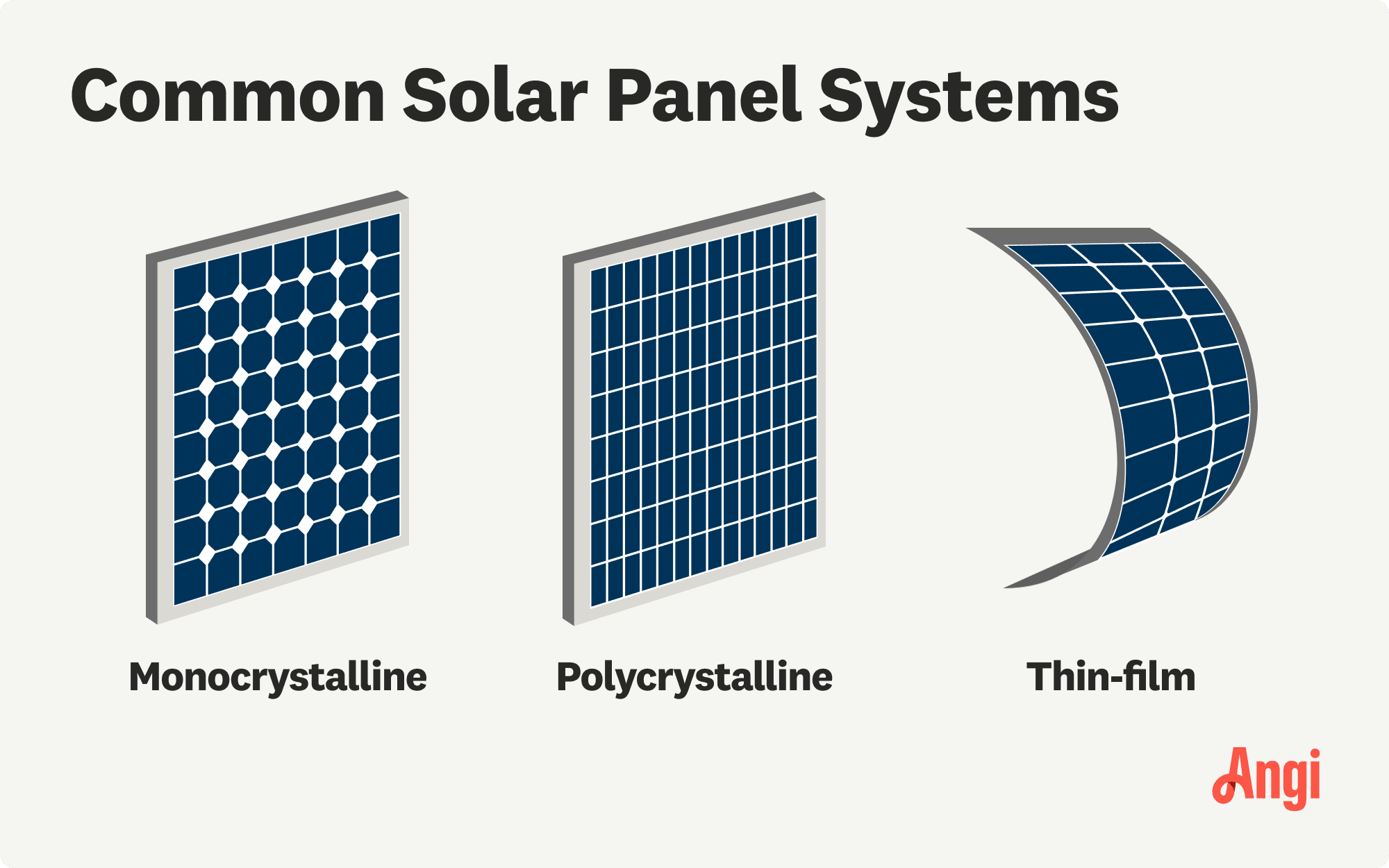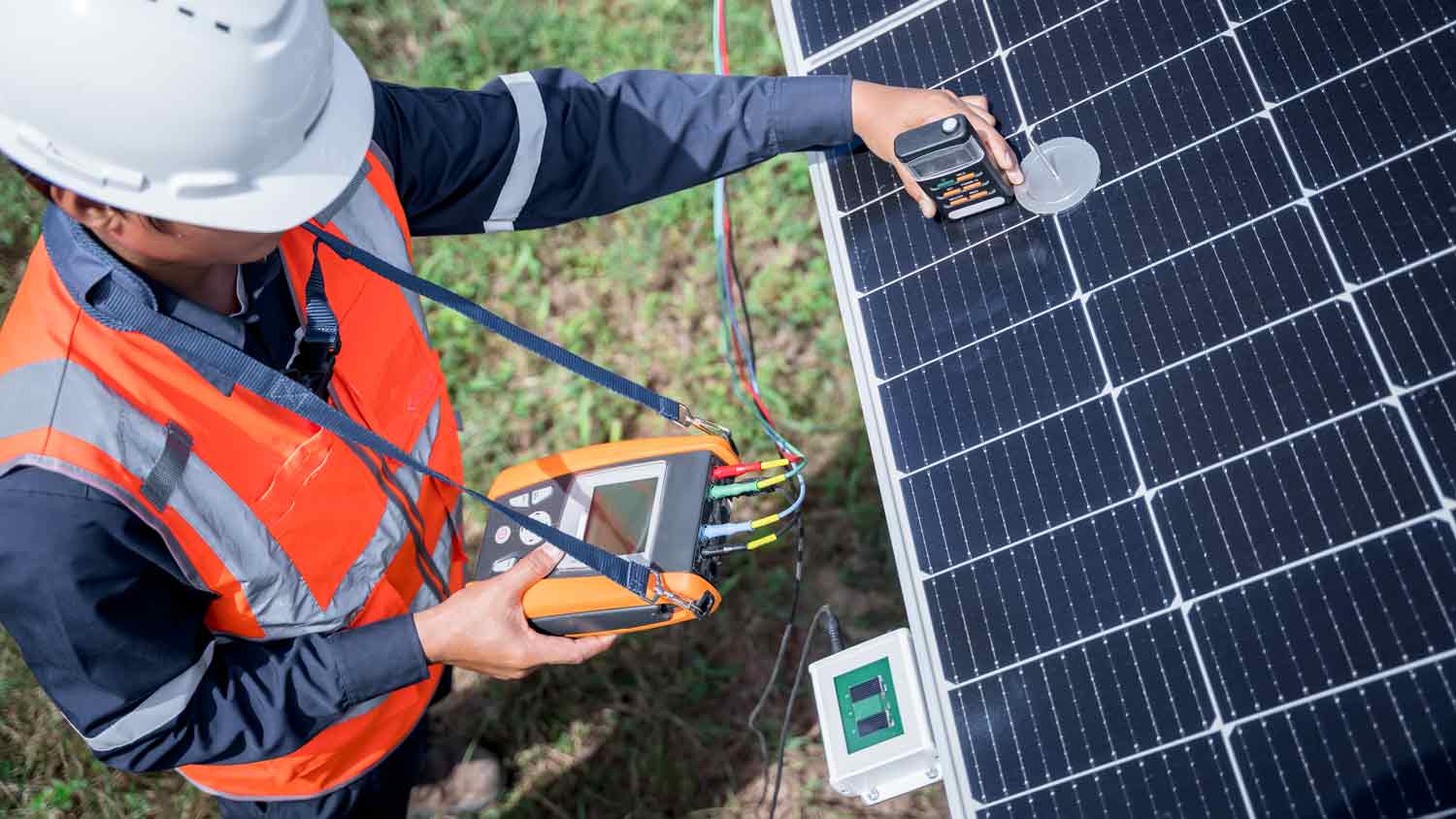
Discover the Tesla Powerwall installation cost, including average prices, cost factors, and tips to help homeowners budget and save on their Powerwall project.
Installing solar panels in Atlanta, Georgia, averages $37,115, though it ranges between $25,357 and $50,833 based on system size, panel type, wattage, and more. A solar panel installer can assess your roof and install your system.


With high solar costs in Atlanta, opting for polycrystalline panels is one way to stretch your budget.
Solar panels increase your home value by about 4.1% and have an ROI of 35%.
Although there aren't any state income or property tax benefits when installing solar panels in Georgia, some utilities offer net metering programs.
With about 220 sunny days out of the year, going solar in Atlanta is viable for many homeowners. You can expect to pay anywhere from $25,357 to $50,833 for solar panel installation costs in Atlanta, with an average of $37,115. Consider factors like the system size, number of panels, and hardware so you can budget wisely.
Understanding the main cost factors for your solar panels will help you plan accordingly for your project in Atlanta, Georgia.
The size of the solar system will impact your solar panel installation costs. The larger the output, the more you’ll pay. Most homes need 6- to 10-kW (kilowatt) systems, which work out to anywhere from 15 to 34 panels, depending on the wattage.
The table below shows average costs based on the size of your solar system:
| Solar System Size (kW) | Average Cost |
|---|---|
| 5 | $16,375–$22,925 |
| 6 | $19,650–$27,500 |
| 7 | $22,925–$32,100 |
| 8 | $23,050–$26,675 |
| 9 | $29,475–$41,275 |
| 10 | $32,750–$45,850 |
| 11 | $36,025–$50,425 |
| 12 | $39,300–$55,025 |

When choosing the type of solar panel that works best for your home, consider three main factors: efficiency, life expectancy, and design. Here’s how the type of solar panel can affect your cost:
| Type of Solar Panel | Average Cost per Watt | Lifespan (Years) | Pros | Cons |
|---|---|---|---|---|
| Monocrystalline | $1–$1.50 | 40 | Long lifespan | High cost |
| Polycrystalline | $0.90–$1 | 25–30 | Works well in temperate weather | Mid-range efficiency |
| Thin film | $0.70–$1 | 10–20 | Easier to install on nontraditional roofs | Short lifespan |
On average, most homes need anywhere from 20 to 25 panels to fully power a home, but this can range from as few as 15 to as many as 34. How many solar panels you need depends on the number of watts per panel, your energy consumption, and the efficiency of your panels. Your average solar panel will have an output of anywhere from 250 to 400 watts. The dimensions of your solar panels will also depend on the power output.
The more advanced the technology, the higher the up-front cost. The type of mount will affect the cost as well:
Fixed mounts: $10–$15 per mount
Adjustable mounts: $50 per mount
Tracking: $500–$3,000 or more per mount (these mounts can self-track sunlight, leading to up to 45% more energy production)
Other materials you will need for a solar energy system include the parts in the table below.
| Hardware | Average Cost |
|---|---|
| String inverter | $1,000–$3,000 each |
| Microinverters | $150–$300 each |
| Power optimizer | $80–$150 each |
| Solar battery | $400–$15,000 |
Inverter and microinverters: Convert direct current (DC) electricity to alternating current (AC) electricity
Optimizer: Regulates currents so each panel is more energy efficient and prevents power loss.
Battery: Stores excess energy from the system so homeowners can use it at night or during a power outage
Some systems use a single solar inverter or several microinverters that convert DC to AC electricity. Materials like the wiring and battery are often grouped with the package price unless you opt for add-on services.
Hiring an experienced pro to install your solar panels is key to making the most of this exciting new home addition. Budget $0.50 per watt for labor when you hire a solar panel installer in Atlanta, Georgia. This number doesn’t include permits or the cost of additional technology, such as special mounts, tiles, or shingles.
Solar panel installation does require electrical work. Though many solar panel installation companies have a licensed electrician on staff who specializes in solar panels, roofing contractors sometimes subcontract an electrician. The average cost of hiring an electrician is $60 to $120 per hour.
Permits are required for solar panel installations in Atlanta, including a building permit for a minimum of $150 and an electrical permit for a minimum of $175. If your solar project affects trees, like removing or pruning them, you might be required to work with the City’s Arborist Division. Ask your solar contractor if they will apply for and obtain the necessary permits, depending on the specifics of your project.
Furthermore, the City of Atlanta will also conduct an inspection before the system is approved for use. Your contractor should attend the inspection and make sure everything checks out.
According to Zillow, home values increase by 4.1% after a solar panel installation. But you have to own the solar system, so this doesn’t apply if you’re leasing the system or participating in a Power Purchase Agreement. Additionally, the return on investment (ROI) for your solar panels is 35%, but you’ll need to consider the age of your panels. If they’re nearing the end of their 25- to 30-year lifespan, prospective homebuyers may not want to take on a replacement.
The payback period, which is the time it takes for you to break even on your solar investment, is about seven years in Atlanta. If you’re thinking about going solar, don’t forget to keep this information in mind and talk to your contractor about your expected energy savings.
Once your solar panels are paid off, they're officially your property. If you move, you can reinstall them on a new rooftop. Alternatively, they can increase the value of your home by 3% to 4% and attract more buyers. They can also give your property a competitive edge in a buyers’ market.
The best way to save money on the up-front costs of installing solar panels is to take advantage of the Solar Investment Tax Credit (ITC) before it ends on December 31, 2025. The ITC allows homeowners to claim a federal tax credit equal to 30% of the price of their solar panel system installation.
For example, if your solar panel system costs $30,000 before the federal tax credit, you can save around $9,000. However, to benefit from this credit, your solar system has to be installed and working before the federal incentive ends.
The ITC, also known as the Residential Clean Energy Credit, was originally extended through 2032 as part of the Inflation Reduction Act. However, new federal legislation (the Big Beautiful Bill Act) signed into law on July 4, 2025, terminated the credit early. The Solar Energy Industries Association® (SEIA) outlines the high-level policy changes and restrictions on energy tax credits.
Additionally, the extra power you choose not to store in a battery can be sent back to the grid. Your local utility company will compensate you for that power, but the amount will vary. You can check the Utility Rate Database on Open EI to estimate how much you can expect to receive for generating excess energy.
Georgia doesn’t offer state income tax credits or property or sales tax exemptions to homeowners for most solar installations. However, some utility companies offer net metering programs, which provide credits for extra solar energy that you produce and don’t use. Check with your provider to see if they offer net metering, their policies, and the rate at which you can sell back your excess energy.
Home is the most important place on earth, which is why Angi has helped more than 150 million homeowners transform their houses into homes they adore. To help homeowners with their next project, Angi provides readers with the most accurate cost data and upholds strict editorial standards. We survey real Angi customers about their project costs to develop the pricing data you see, so you can make the best decisions for you and your home. We pair this data with research from reputable sources, including the U.S. Bureau of Labor Statistics, academic journals, market studies, and interviews with industry experts—all to ensure our prices reflect real-world projects.
Want to help us improve our cost data? Send us a recent project quote to [email protected]. Quotes and personal information will not be shared publicly.
From average costs to expert advice, get all the answers you need to get your job done.

Discover the Tesla Powerwall installation cost, including average prices, cost factors, and tips to help homeowners budget and save on their Powerwall project.

Discover the average solar panel inspection cost, what impacts pricing, and how to save. Get expert tips to keep your solar system efficient and safe.

There are a few factors to consider when it comes to solar panel repair costs. This guide breaks down the prices of solar panel removal, repair, and replacement.

You may be wondering what the difference is between solar panels on the ground versus on the roof. Learn which one is best suited for your needs.

Are solar panels worth it? It depends on several factors—from the sunlight in your yard to local energy costs. This guide will help you decide.

Looking to heat your home with the help of the sun? Learn about different types of solar thermal collectors in this guide.